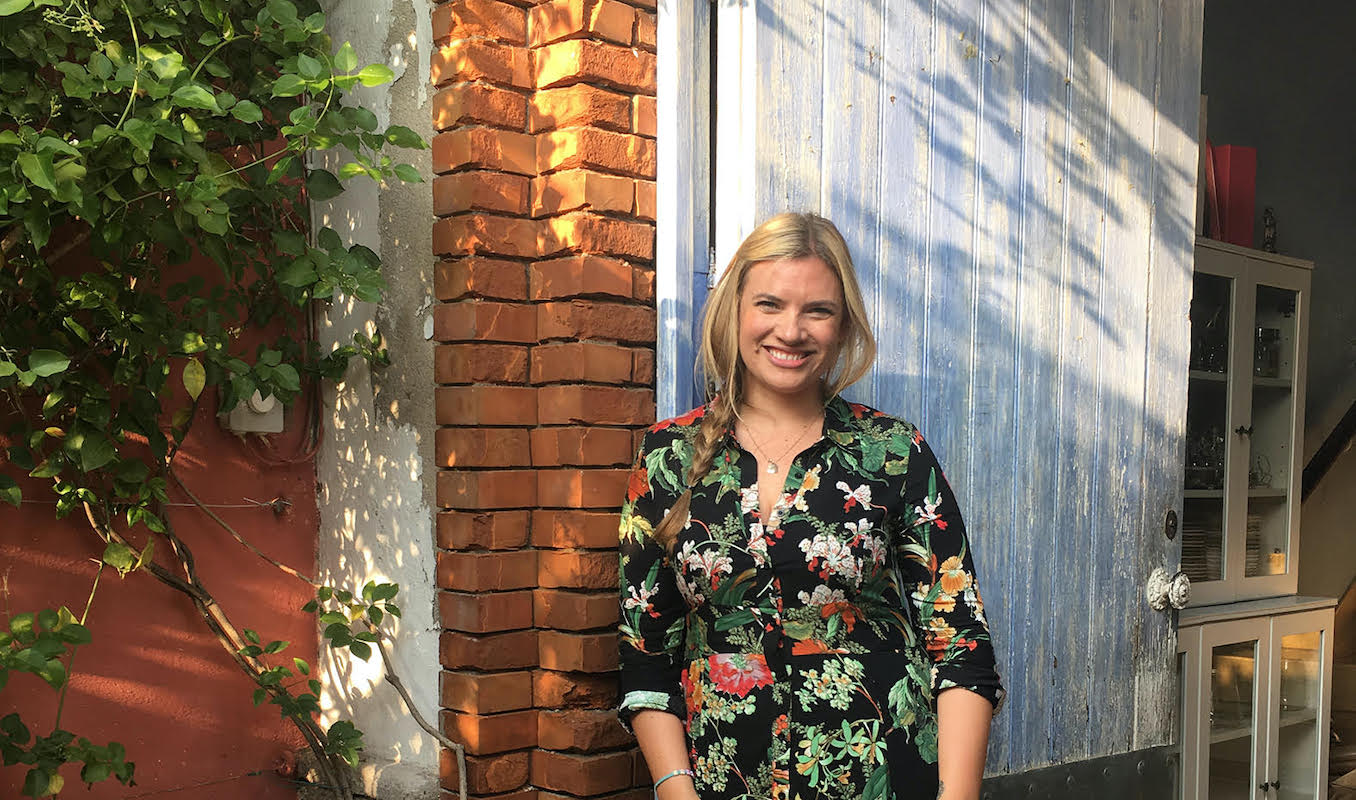This website uses cookies so that we can provide you with the best user experience possible. Cookie information is stored in your browser and performs functions such as recognising you when you return to our website and helping our team to understand which sections of the website you find most interesting and useful.
The rise of the Time Millionaires
By Judy Cogan | 16 March 2022 | Travel
When it comes to true wealth, we discover why money alone no longer makes the world go round

Like many people before her, Fatinah Hayat spent the first decade of a high-powered career in fashion merchandising “working extremely hard and focusing solely on progression,” which led her to surrendering weekends and holidays to emails and meetings. “To achieve results I had to give more and more time,” she recalls. “It just wasn’t sustainable and I reached burnout pretty quickly. I was left feeling so frustrated.”
In April 2017, Hayat made a life-changing decision. “Instead of taking the Eurostar to Paris to attend a trade show one day, I found myself resigning from my job.”
She flew to Bali for a month of “good rest” and to rethink her future while enjoying yoga, sea swims and learning Ikigai – a Japanese technique for finding purpose in life.

“I discovered more about myself than ever before. It struck me, I don’t want to look back at my life one day and think I spent most of my time doing something I didn’t enjoy.”
Returning to London the 36-year-old still had no idea what she’d do next but felt “a greater sense of self and what excites and drives me”.
First, she spent time cooking and catching up with friends and family. Then she started up her ethical fashion brand The Hayat and she hasn’t looked back. “Hayat in Arabic means ‘life’ so it felt like an appropriate name for a business that gives me life,” she says. “Now I don’t need a holiday form, I can find my own balance and manage my time in a way that works best for me.”
Hayat is part of a growing movement of Time Millionaires: professional people who measure their worth not in terms of financial capital, but according to the time they can claw back from work for recreation.

The term was coined by writer Nilanjana Roy in her 2016 column for the Financial Times: How I became a time-millionaire. ‘Time is so valuable it’s like having money in the bank’. In the article Roy writes: “For a growing number of affluent professionals, it’s regarded as inefficient to be too busy to fit in exercise, family life, travel, hobbies, and positively old-fashioned to boast about long working hours.”
Post-pandemic, this work revolution is on the rise. In the US, by November last year, a record 4.5m people had quit their jobs, with 2021 being dubbed the year of the “great resignation”. Meanwhile in February this year as part of his work for wellbeing app BetterUp, the Duke of Sussex came forward to encourage employers to give staff more time to focus on their mental health. He suggested business leaders factor “me time” into their employees’ daily routines with access to meditation and regular breaks.
In the words of English philosopher Alan Watts: “Better to have a short life that is full of what you like doing than a long life spent in a miserable way.”

It’s true most happily successful people, such as Warren Buffett, Oprah Winfrey and Sir Richard Branson, have the knack of enjoying what they do for work but take time off for activities they love. But the rest of us still have a long way to go, says author Oliver Burkeman, whose best-selling book Four Thousand Weeks: Embrace your Limits, Change your Life explores the idea that we all have roughly four thousand weeks on earth and asks how best we can use this time. Burkeman claims it comes down to a shift in perspective. If you stop trying to do everything, you may finally get around to doing what counts.
“At some point you have to see that the key to a fulfilling and meaningful existence is choosing a few of things you really want to do and pouring your time into those things,” he says. “It’s about coping with the fact that sometimes this will make us feel anxious. It really is that simple – not easy, but simple.”
He also believes it’s not about putting off your passions until the work is done, because it never will be if you don’t change your approach to time. “If you care about doing some specific thing in life, at some point, you do actually have to do that thing,” he says. “You can’t always put it off into the future. That feeling of ‘if not now, when?’ is really powerful.”
While Hayat says she relies on “goal mapping, strict time management and routines” to manage her work and life, her biggest piece of advice is to “check in with yourself and allow yourself time to actually do whatever sparks joy. Trust the process.”
But if being time-rich over money-rich is the goal, use the extra time wisely. “Be mindful that if you get super-efficient at work, more work is going to be sucked into your life by your greater efficiency,” says Burkeman. “If people are ambitious and successful, making more space in their schedule is making more space for more work.”
Jonathan Wicks, who lives in Scottsdale, Arizona USA and is president of property management company JD Wicks Co, “wholeheartedly” identifies with being a Time Millionaire and says it not only benefits his life, but his employee’s lives too.

“We live in a 24/7 society, and that has worked its way into businesses often to the detriment of the individual workers,” he says. “We ask our professionals to be fully present both physically and mentally and that distinction also translates to a “switch off ” that allows team mates to truly rest and enjoy their lives outside of their work.”
When the 35-year-old isn’t working he likes to spends time in nature. “The vividness of seeing real things through a screen-free lens is the ultimate leisure for me. In those moments, I try to refrain from using any screens at all. For instance, if I’m golfing, I’d rather keep score on a traditional scorecard vs a digital one. Little adjustments of the mind allow me to feel rested in a way that is very different from watching a TV show.”
For Wicks, ultimately, time off should be celebrated. “We often try to swing pendulums, and that leads to even more defeat, so take small steps” he says. “Vocalising the need for true rest within your organisation will start to set a culture that doesn’t frown upon “switching off”, but rather works toward it. Teammates will rally around giving others those rest periods because they know it is a full-circle process. Celebrate a full vacation or a long lunch break. The culture of a rested and ready-to-rock team will start to prevail, and you and your organisation will be better for it.”

How to become a Time Millionaire
Leilani Franklin-Apted (pictured above) is an Experience Designer and Remote Work Consultant and former Chief Design Officer at Unsettled. Here are her top three tips on how to embrace the lifestyle of a time millionaire and value “being” over “having”.
1. Life balance is a process not an outcome. It is not a “set it and forget it” one-time solution. Think of balance like a moving target and regularly check in to see what you need and what tools you can use for tracking, following, and tweaking as you go.
2. There is no right or wrong way to reimagine your life. The aim in fluid lifestyle design is to take down the barriers in your work/life structures to better access what you value. It’s a great exercise in learning to be yourself.
3. A big part of being a time millionaire is about being the guiding influence in our lives, rather than relying on external direction. Burnout often comes when we are detached from our own guidance and trying to fit into moulds that don’t work for us.







